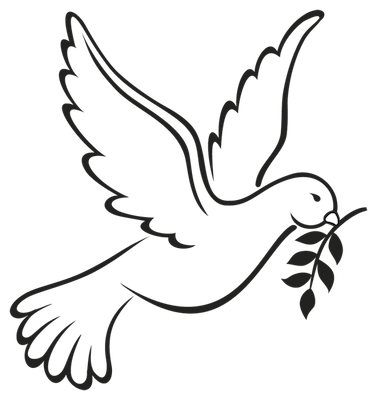The concept of the “comfort zone” came to us from Western psychologists. Famous Abraham Maslow described the hierarchy of human needs within a pyramid, starting from physiological needs (sleep, sex, food, etc.) and ending with self-realization.
If we summarize and satisfy all the components of the pyramid, we get a comfort zone - the physiological and psychological space which is familiar, pleasant, comfortable and safe for us. No stress, challenges or surprises. It is as if a man is in a glass jar, from where he observes the outside world. But this is an ideal picture.
What is really going on?
Most often, a person is in an imaginary comfort zone.
Imagine a situation: you take the same route to go to work, 5-6 times a week you see the same boss who frankly annoys you. He finds fault with your work because of a bad mood, criticizes unconstructively (after he makes comments, he does not give the right alternative) and diminishes your accomplishments at work. But once or twice a month he gives you a bag of gold, for which you have been enduring all this.
This can be called a comfort zone: everything is familiar and predictable here. You even know the payout amount in advance.
But it is more accurate to call such a situation a zone of habit. However, bloggers and motivators do not fall to such subtleties, and no one asks psychologists about it.
An environment where everything is familiar, but which does not bring happiness and causes inconvenience instead, should be abandoned.
In the book “Rich Dad, Poor Dad”, Robert Kiyosaki develops an interesting idea: in the modern world, the antonym of courage is not cowardice, but conformity.
"In the modern world, the antonym of courage is not cowardice, but conformity."
Robert Kiyosaki
Yes, nowadays people’s fears are a little different. They are not afraid of disease, war and death, but they are afraid of change. They are ready to endure anything, destroy their nervous system and self-esteem, but not to change anything in their behaviour and lifestyle.
So, day after day we endure our bosses and their whims, the intervention of parents in our personal lives or the tantrums of our second halves, accustoming ourselves to live in discomfort.
Gradually, discomfort becomes habitual, and the habit becomes familiar and habitual, i.e. comfortable. But only a masochist can call it convenient.
And you should get out of it for sure!
What to do and where to move?
Many of us may need the help of a psychologist - it is not always easy to disassemble perennial complexes and patterns (ways of thoughts and actions). We grow together so much with our mental patterns and habits, that we don’t even notice them.
But conscious and analytical thinkers can try it for themselves:
- Write down what exactly does not suit you. You need to note specific things: a long road to work, unreasonable (for sure?) criticism, screams at home, reproaches (the reason, circumstances, your reaction).
- How do you react - endure, snapback?
- Why is this happening? You do not know how to defend personal boundaries, you have low self-esteem, toxic people around, you basically do not like what you do, etc.
- What can you do? Change your job, occupation, upgrade communication skills and your self-esteem?
- The most detailed action plan for point 4.
So, step by step you make out your "bad" habits and make yourself comfortable. This may take more than a month or even a year. If you have lived in stress and imaginary comfort for the past 25 years, then you will not have to wait for quick results.
But a pleasant team, self-esteem, a soul mate who does not scandal, but speaks calmly and appreciates your opinion, are worth it. This is the space where you can feel convenient, calm, safe and comfortable.
But there is one snag - you should leave the comfort zone too.
Nice growth
Why do smart people leave their environment where everything is nice and easy? Because it’s boring there. There is no growth, drive, and pleasant stress there, that makes the brain and body move.
If you check a textbook on psychology, you’ll find an interesting scheme:
- Comfort zone
- Growth zone
- Panic zone
It is necessary to leave the comfort zone gradually expanding the boundaries of convenience. Speaking absolutely precisely, the comfort zone should not be left but increased. The more you know, the more you are capable of, the better you adapt or change the world for yourself, the more comfortable you will feel. But the growth must be gradual.
In 2014-2016 there was a boom in bodybuilding in Russia. Everyone rushed to shape up - some lost weight, others gained. Communities and thematic groups were flooded with photos of athletes and pictures with motivating captions: “There is no growth without pain”, “If you do something and it’s easy for you, then you are doing it wrong / take extra weight / don’t lift off”, etc.
A person went to the gym and grabbed huge dumbbells, like the man in the picture, or climbed under a loaded barbell. Sure enough, nothing but pain, injuries and a sense of total worthlessness came out of this.
And it will always be like this if the step from the comfort zone is too big. You will immediately find yourself in the panic zone, skipping point number 2, and it will be the growth zone.
The expansion of the comfort zone should be gradual. Imagine that you came to visit another city and went for a walk. You will not go far unless you can fantastically navigate the terrain, do not have a guide or a map. Without this, you’ll get lost. Or you will go alone, but not far to be able to return. And each time you will be able to move further away because you will remember the area and broaden your knowledge.
It is the same with self-esteem - if you hated yourself and for a long time openly spread rot, you won’t be able to fall in love with yourself right away. First, you need to stop humiliating and insulting yourself, then you will learn how to treat yourself, and in the end – how to love yourself and take care.
Everything should be comfortable - both the comfort zone and its expansion.
I want to end with the words of the unforgettable cat Matroskin: “To sell something that is not needed, you first need to buy something that is not needed, but we have no money for that.” If you are not in the comfort zone now, but only in the zone of habit, then there is nowhere to go. First, you need to create, and then – to EXPAND.
Love yourself and live comfortably!
 Default
Default
Feedback
What bloggers and motivators of all stripes shout about, psychologists coquettishly keep silent and the subtleties of mentality are united by a short phrase - “comfort zone”. What stands behind it, how to get there and painlessly get out – all this will be discussed in the article!


